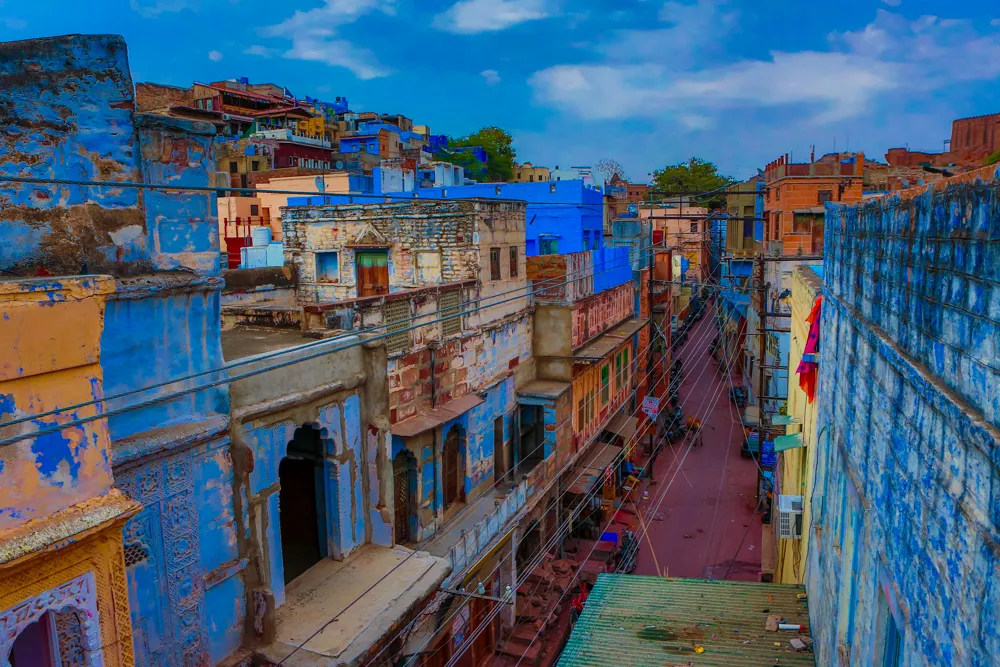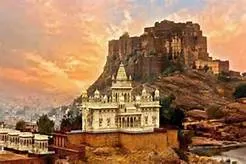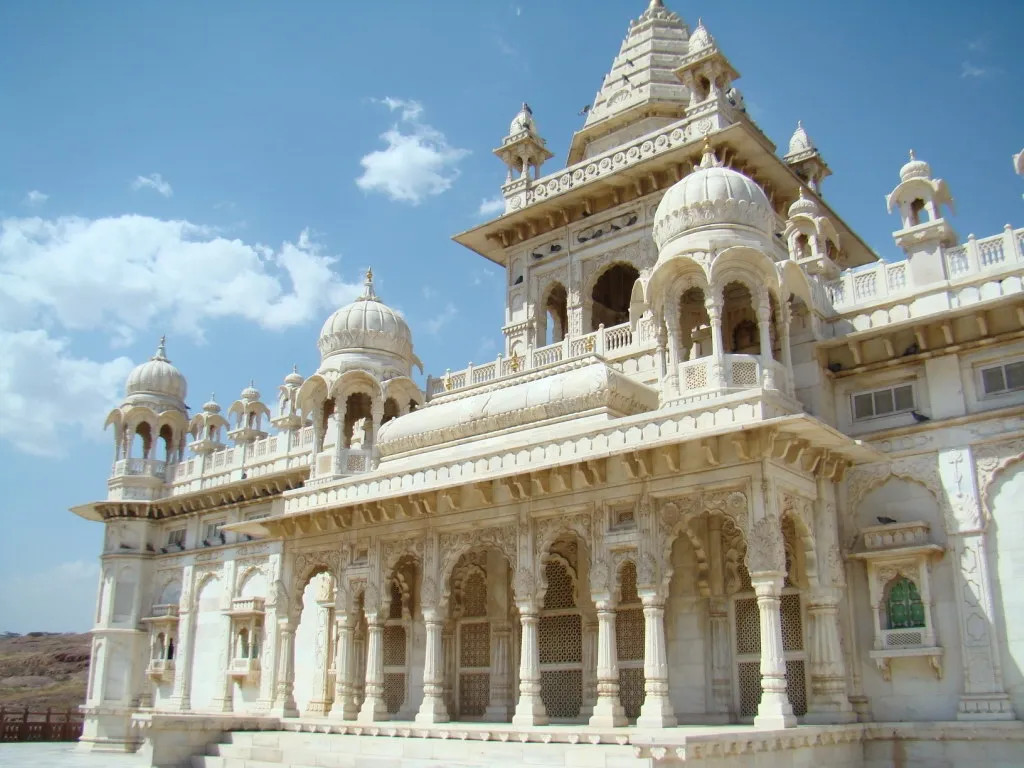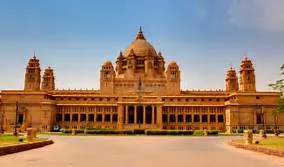Jodhpur is a well-known name for Rajasthan travelers. It is the second largest city in Rajasthan.
Since you are on this page, I assume you are curious about Jodhpur. Right?
It is called Sun City (Hindi: Surya Nagari) as the city enjoys bright sun all the year. Even the days in winter (winter is coming 😉 ) are sunny.It is also called Blue City because most of the houses here are painted blue. You can see this in the image shown above.

Blue is a cool/calm color. As the sun is bright here all the year, so the houses needs to be cooled down. And, blue color keeps houses cool.
The city also topped Lonely Planet’s list of extraordinary places to live in 2014. The popular tight horse riding trousers Jodhpurs, got their name from this city.

Rao Jodha founded this city on 12 May 1459. Yeah, you guessed right – this city is 558 years old.
This city got the name from Rao Jodha himself. Before this name the land was called Marwar and its people Marwari.
It is also known for its grand marriages. Recently, many celebrities have chosen it for their wedding and birthday celebrations.
Many Bollywood and Hollywood movies have highlighted it. This all means that – it has become a popular tourist destination.
The Hindu epic Ramayana (composed up to the 4th century AD), Abhiras (Ahirs) were the original inhabitants of Jodhpur and later Aryans spread to this region. There may have been small settlements before Rathore rule.
The city was located on the strategic road linking Delhi to Gujarat. This enabled it to profit from a flourishing trade in opium, copper, silk, sandals, date palm and coffee.
After the death of Chandrasen Rathore the state became a fief under the Mughal Empire, owing fealty to them while enjoying some internal autonomy. During this period, the state furnished the Mughals with several notable generals such as Maharaja Jaswant Singh. Jodhpur and its people benefited from this exposure to the wider world as new styles of art and architecture made their appearance and opportunities opened up for local tradesmen to make their mark across northern India.
View of the Rajasthan High Court, Sardar Museum in Umaid Park and upper right is Jodhpur fort in 1960.

Aurangzeb briefly sequestrated the state (c.1679) on the pretext of a minority, but the prior ruler Maharaja Ajit Singh was restored to the throne by Veer Durgadas Rathore after Aurangzeb died in 1707 and a great struggle of 30 years. The Mughal empire declined gradually after 1707, but the Jodhpur court was beset by intrigue; rather than benefiting from circumstances, Marwar descended into strife and invited the intervention of the Marathas, who soon supplanted the Mughals as overlords of the region. This did not make for stability or peace, however- 50 years of wars and treaties dissipated the wealth of the state, which sought and gratefully entered into a subsidiary alliance with the British in 1818.
Street Scene of Jodhpur in 1906
During the British Raj, the state of Jodhpur had the largest land area of any in the Rajputana. Jodhpur prospered under the peace and stability that was a hallmark of this era. The land area of the state was 90,554 km2 (34,963 sq mi) its population in 1901 was 44,73,759. It enjoyed an estimated revenue of £3,529,000. Its merchants, the Marwaris, flourished and came to occupy a position of dominance in trade across India. In 1947, when India became independent, the state merged into the union of India and Jodhpur became the second largest city of Rajasthan.

At the time of partition, the ruler of Jodhpur, Hanwant Singh, did not want to join India, but finally due to the effective persuasion of Sardar Vallabhbhai Patel, the Home Minister at the time, the state of Jodhpur was included in Indian Republic. Later after the State Reorganisation Act, 1956 it was included within the state of Rajasthan.
Men as well as women has unique dresses in Jodhpur. Jodhpuri Coat for men and Jodhpuri Salvar-suit for women is very famous.
Jodhpuri Safa and Jodhpuri Juti are another dressing items that are famous.
In fact, they have become style icon and status symbol of royal and grand marriages in India.
Narendra Modi, Amitabh Bacchhan and Rajiv Gandhi have dressed Jodhpuri coat.
Mehrangarh Fort
It is one of the largest forts in India. Most of the Jodhpur tourists come here to visit it.
They have seen it in pictures and want to visit it. The view of Jodhpur from the fort is breath-taking.

It is one of the world’s largest private residences. In 1928 people were suffering from unemployment.
The then king Umaid Singh Ji started building this, so that people could find employment. It is an architectural marvel of Jodhpur artists.
Currently, it is the best hotel in the world according to TripAdvisor’s traveler choices awards 2016.